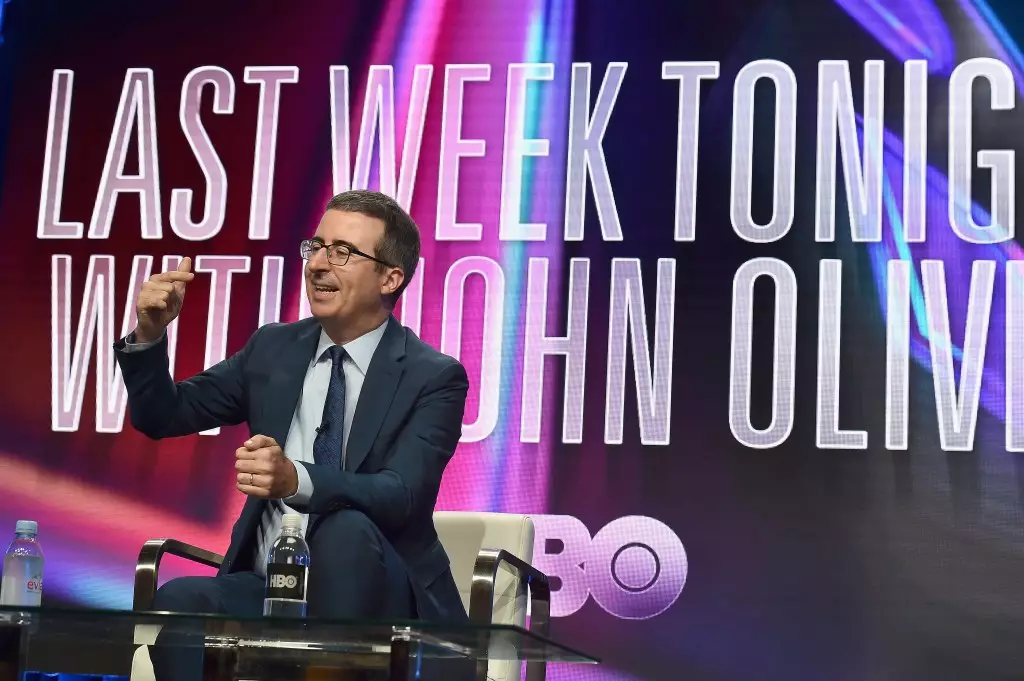In an unexpected twist of events, well-known HBO host John Oliver finds himself facing a potentially explosive defamation lawsuit filed by Dr. Brian Morley, a former medical director for the health insurance firm AmeriHealth Caritas. The complaint, lodged in a New York federal court on March 28, 2024, charges Oliver and his team at “Last Week Tonight” with the stark allegation that they misrepresented Morley’s words during a deep dive episode into Medicaid fraud and Managed Care Organizations.
Oliver has built his reputation on fearless commentary that often pushes the boundaries of satire and reality, but the legal quagmire presented by Morley shines a light on the fragility of free speech when it collides with profession and reputation. Essentially, the lawsuit alleges that Oliver and his producers curated a narrative that wrongly suggested Morley condoned neglectful treatment of vulnerable populations—specifically individuals with severe mental impairments.
Morley’s complaint explicitly states that Oliver’s assertions led viewers to believe he was complicit in appalling actions concerning a young man whose care needs were grave and pressing. This framing, Morley’s legal team asserts, has not only tarnished his professional standing but has also inflicted emotional distress, raising the stakes of a courtroom clash with the potential for significant financial repercussions.
Implications of Misrepresentation
At the core of Morley’s argument is the claim that Oliver deliberately altered the context of his testimony from a lengthy administrative hearing held in 2017. The nuances of Morley’s original statements, as presented in the lawsuit, emphasize the necessity of context in understanding his professional position on hygiene in specific medical cases. By slicing and dicing Morley’s words, Oliver’s show appears to have stripped away critical elements that explain the rationale behind his reasoning.
The heart of the complaint indicates a troubling pattern of negligence and a reckless disregard for the truth. The lawsuit notes that a producer involved with “Last Week Tonight” had previously reviewed Morley’s entire testimony and still chose to move forward with a dramatically edited version that ignited public outrage. This raises fundamental questions about the ethics of satirical journalism: How does one balance the need to entertain with the responsibility to inform accurately?
Public Outrage and its Consequences
The furious backlash against Morley was palpable, echoing Oliver’s own incendiary remarks in the April 2024 episode, where he exclaimed, “Fuck that doctor with a rusty canoe. I hope he gets tetanus of the balls.” This hyperbolic language may have been intended for comedic effect, but it has added monumental fuel to Morley’s defamation claim, illustrating how powerful media assertions can warp public perception and devastate individual reputations.
In today’s digital age, the virality of viral statements can drown out the truth, creating a ripple effect of misunderstanding. As the complaint emphasizes, the team behind “Last Week Tonight” knew or should have known the potential ramifications of their edits. This dynamic reveals not just a legal battle, but a substantial moral crisis concerning the ethics of media representation and its real-world impacts.
The First Amendment Defense
Tensions mount as the case progresses, especially concerning First Amendment protections that defend satirical speech. While comedy shows have traditionally enjoyed a buffer that allows for exaggeration and commentary, the issue at hand challenges the boundaries of this protection. If it can be proven that Oliver’s team engaged in negligent behavior or reckless disregard for the truth, the arguing team could find themselves in a precarious position.
The legal discourse surrounding this case stands to have broader implications for media practices, particularly when it comes to health-related discussions that can sway public sentiment. The outcome of the lawsuit could reshape standards of accountability within the realm of satirical content, possibly forcing shows like “Last Week Tonight” to rethink how they curate and present complex information.
Analyzing Morley’s Claims
Delving further into the specifics of Morley’s claims, the original context reveals a distinction between what was said and how it was interpreted by a viewing audience uninformed of the intricate medical nuances at play. Such misunderstanding could easily lead to generalizations that dehumanize and vilify professionals within the healthcare system. Morley argues that his words were distorted to incite controversy and manipulate viewers, ultimately at the expense of his reputation.
Medical professionals often navigate sensitive terrains, and statements made in such environments require keen attention to context—not just for ethical considerations but to protect those who serve vulnerable populations. If Morley’s accusations hold water, Oliver’s snappy critiques could quickly morph from humorous to harmful, rebuking the nuance essential in serious discussions surrounding health and policy.
They say that every joke holds a kernel of truth, but in this instance, it may just be the case that the truth itself serves as a punchline in a broader narrative of media accountability. The jury is yet to be seated in this unfolding saga, but stakes are high, signaling that not all humor is consequence-free.

